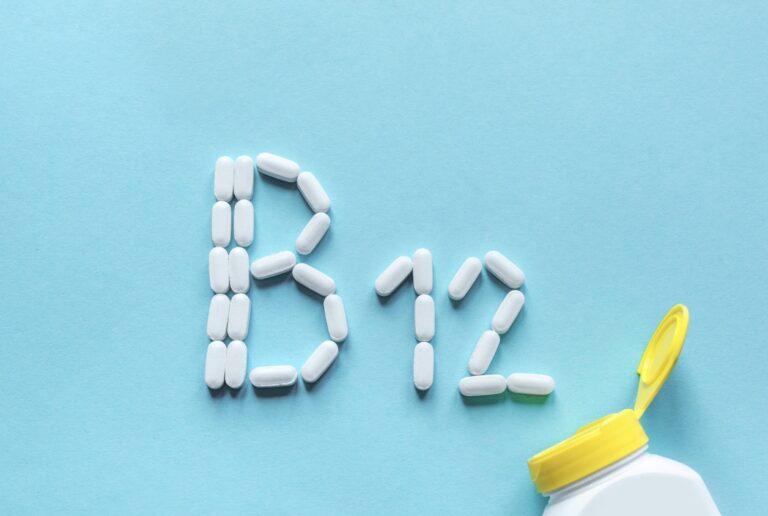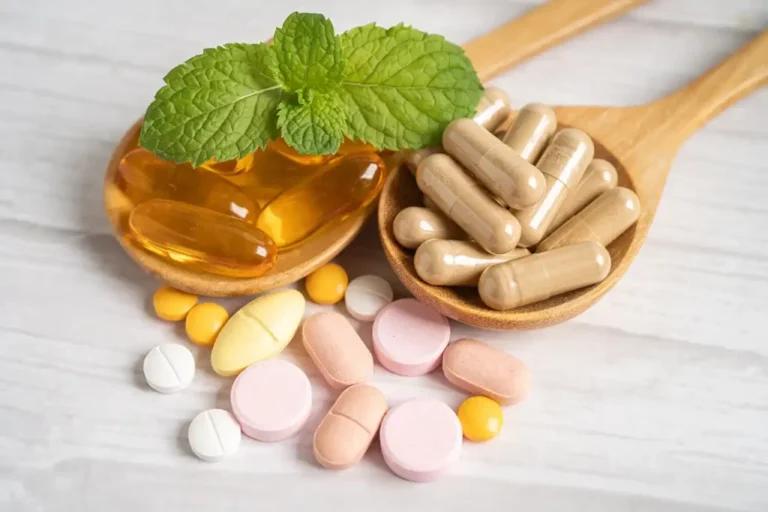
Vitamin A is a fat-soluble vitamin, which is stored in your body. This means that excess consumption can lead to toxic levels.
Vitamins are nutrients your body needs in small amounts to work properly and stay healthy. Most people get enough vitamin A from food sources by having a balanced diet high in fruits, vegetables, and whole grains. However, a healthcare professional might suggest vitamin A supplements to people who have vitamin A deficiencies, such as those with diseases such as digestive disorders or very poor diets.
What is Vitamin A?
The two main forms of vitamin A in the human diet are the active form of vitamin A (retinol, retinyl esters), which come from animal products and provitamin A carotenoids such as beta-carotene. Carotenoids come from plant-based foods and are antioxidant forms of vitamin A. The body converts these into retinol as it needs.
Vitamin A is also available in dietary supplements. It most often comes in the form of retinyl acetate or retinyl palmitate (preformed vitamin A), beta-carotene or a combination of both.
What does Vitamin A do?
Vitamin A, also known as retinol, has several important functions, these include:
- Helping your immune system function properly by stimulating the production and activity of white blood cells
- Preventing Xerophthalmia, a common symptom of vitamin A deficiency in young children and pregnant women. Night-blindness or the inability to see in low light or darkness are early signs of this condition – Vitamin A is a major component of the pigment rhodopsin
- Keeping your skin and the lining of membranes of some parts of your body healthy
- Preventing age-related macular degeneration
- Slowing the progression of Stargardt’s disease, an inherited eye disease
- Preventing the thinning and ulceration of the cornea, which can lead to blindness
- Vitamin A is needed by the retina of the eye in the form of retinal, which combines with protein opsin to form rhodopsin, the light-absorbing molecule necessary for both low-light and colour vision
Isotretinoin is an oral retinoid that is effective in treating severe acne. This medication can have serious side effects and must only be taken under medical supervision.
At the moment, the relationship between vitamin A levels in your body and cancer risk is still not fully understood. Results from clinical trials have been inconclusive with regards to the risk of lung cancer and Vitamin A.
Can you overdose on Vitamin A?
Yes. Hypervitaminosis A, or vitamin A toxicity, occurs when you have too much vitamin A in your body. This condition may be acute or chronic and depends on the amount of Vitamin A consumed. Vitamin A is super for immune function and eye health and you should be able to get enough vitamin A from your diet.
Symptoms of vitamin A toxicity include:
- Dry skin
- Joint pain
- Nausea, vomiting
- Headaches, dizziness and confusion
- Interference with beneficial effects of Vitamin D – bones may be more likely to fracture
What happens if I take too much vitamin A?
The Institute of Medicine recommended dietary allowance (RDA) for adults 19 years and older is 900 mcg of retinol activity equivalents (RAE) for men (equivalent to 3,000 IU) and 700 mcg RAE for women (equivalent to 2,333 International units (IU)).
Some research suggests that having more than an average of 1.5 mg (1,500 µg) a day of vitamin A over many years may affect your bones, making them more likely to fracture when you’re older. This is important for older people, especially women, who are already at increased risk of osteoporosis, a condition that weakens bones.
The recommended intake of vitamin A varies according to your age. pregnant women and breastfeeding women need more. During pregnancy, the requirement is 770 mcg (micrograms) per day. While breastfeeding, it is 1,300 mcg per day.
Having large amounts of vitamin A can harm your unborn baby and cause birth defects. If you’re pregnant or thinking about having a baby, do not eat liver or liver products, such as pâté, because these are very high in vitamin A. Also, avoid taking supplements that contain vitamin A. Speak to your GP or midwife if you would like more information.
How can you avoid getting too much?
You should be able to get enough Vitamin A from your diet. There is no strong reason for most people to take individual high-dose beta-carotene supplements. It is also important to know that many multivitamins contain vitamin A. Other supplements, such as fish liver oil, are also high in vitamin A.
Good sources of vitamin A are:
- Dairy products – milk, eggs, fortified cereals
- Sweet potatoes, carrots, spinach, broccoli, cantaloupe, squash and apricots
- Dark fruits
- Animal products including meat, chicken, and fish include the compounds retinol, retinal and retinoic acid
- Liver and liver products such as liver pâté. If you eat liver every week, do not take supplements that contain vitamin A
Sources
Medical Disclaimer
NowPatient has taken all reasonable steps to ensure that all material is factually accurate, complete, and current. However, the knowledge and experience of a qualified healthcare professional should always be sought after instead of using the information on this page. Before taking any drug, you should always speak to your doctor or another qualified healthcare provider.
The information provided here about medications is subject to change and is not meant to include all uses, precautions, warnings, directions, drug interactions, allergic reactions, or negative effects. The absence of warnings or other information for a particular medication does not imply that the medication or medication combination is appropriate for all patients or for all possible purposes.






